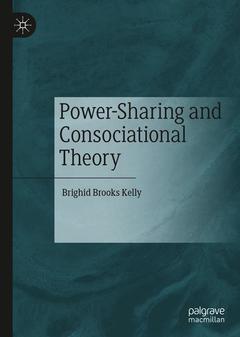Power-Sharing and Consociational Theory, 1st ed. 2019
Auteur : Kelly Brighid Brooks

Provides a carefully constructed, large scale statistical analysis of the influence of consociational components on stability
Includes a qualitative treatment of seven places that have experienced consociation, which facilitates comprehension of the role of consociational components
Offers insights to readers interested in how any divided society can best achieve long-term stability
Date de parution : 04-2019
Ouvrage de 389 p.
14.8x21 cm
Disponible chez l'éditeur (délai d'approvisionnement : 15 jours).
Prix indicatif 79,11 €
Ajouter au panier


